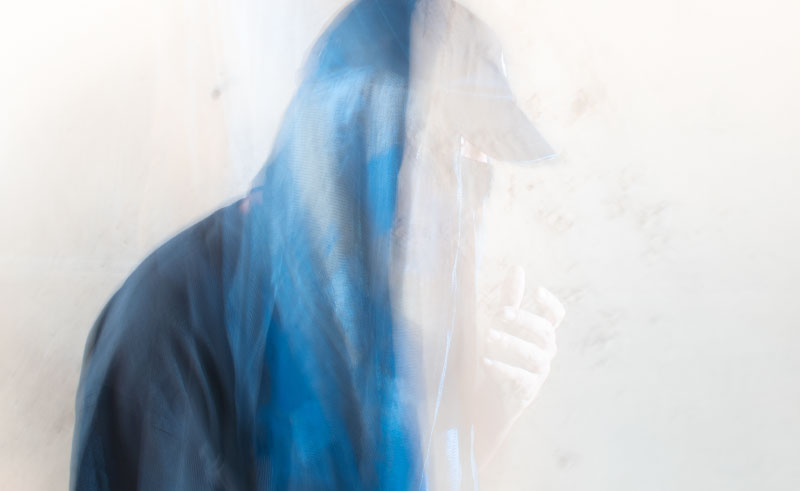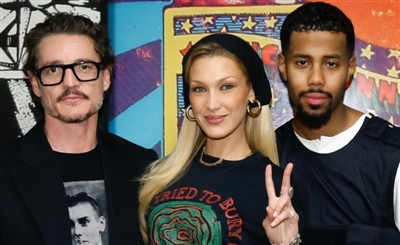Postdrone Ponders the Dissonant Noise of Cairo in ‘Ready for Nothing’
Released on Rakete, the experimentalist's debut album is a miry fusion of influences and sonic reflections on his own sense of existence in his city and the limiting commercialisation of music.

Few words strike more fear into the hearts of music journalists than 'genreless'. We can talk about how genre is limiting till the cows come home, but our consumption of media in all of its forms is very much based on expectation - we want to know what we’re getting ourselves in for and few examples of the human mind are truly and utterly able to break free of this curse. Call it close-minded, call it ‘being safe’, but it’s human nature.
To really embrace the work of Egypt-based newcomer, Postdrone, however, you certainly have to open all mental shackles and though that might go against human nature, Ready For Nothing is very much human in nature.
The album has been released via Rakete and comes as the Cairo-based label’s third release after their first VA, Cairo Quest, and well-received December, 2020 EP, Hope Amongst Despair by Hassan Abou Alam.
Ready For Nothing opens up a new space in Rakete’s already wide-reaching attache of sounds. The experimental, anonymous producer’s debut album is a reflection of his own sense of existence in Cairo and what he describes as the city’s “inherent dissonant noise” and “suppression of left-field works in the face of a deeply commercialised musical landscape” - but it’s also an ode to them, in that it’s a product of and reaction to those things.
One could say that this genreless (uh-oh) introduction of Postdrone is an act of musical and cultural activism, a voice for a collective front, a shared experience with similarly neutralised experimentalists and the restless youth of Cairo. There’s something intrinsically and innately personal about it, too, though, because there has to be. On a sonic level, Postdrone creates the kind of sweeping vistas of sound that can only have been born of spontaneity and intuition, the kind of rhythms that flow best out of introspection.
His day isn’t quite over yet, though, because label mate and arguably one of Egypt’s most innovative producers, Hassan Abou Alam, provides two remixes to the album, starting with his take on the Postdrone’s closer, ‘Mahragan El Arp’. He takes the track from Postdrone’s weary mind to the club-focused space, yet he retains a warmth that only bass can provide, which can be said of the second remix, of ‘Dawasha FM’, too.
The original is a particular highlight of the album as a whole, even if that’s because it has one thing that none of the other tracks do: vocals. They come courtesy of PostTawheed, whose raps find a harmony with the other sonic elements of the track, adding an urgency and a visceral yet somehow posthuman aesthetic to proceedings. Abou Alam takes remnants of the track's soul, chopping them up and arranging them at a pace and energy that the Postdrone’s originals intended not to reach.
By the end of the album, Postdrone’s intention of reflecting the “inherent dissonant noise of Cairo” and “suppression of left-field works” might seem like a distant memory. That’s not a weakness, but a result of Postdrone’s experimentation, which relies just as much on a visceral, deconstructed consumption on the part of the listener as much as theory and intellectual connection. Ultimately, the album doesn’t burden itself with trying to make a statement. Instead, the unbridled freedom Postdrone affords himself is a statement in itself.
Maybe the theory and the rationale came first and the music fulfilled its prophecies. Maybe they came as a byproduct or reflection on the music after it was created. Repeat listens won’t answer these questions, nor will they truly reveal the true intent - context and understanding of an artist can unlock countless secrets. We have some of these things, but not all - and that’s how it’s meant to be, that’s the one intention we can be sure of. There’s a sense of abandon fuelled by the abyss that Postdrone creates and the name of the album, Ready for Nothing, goes someway to summing-up this sentiment. That’s the key to this album - to revel and stew in that abyss.
Photo courtesy of Rakete/Omar Kafrawy
- Previous Article test list 1 noise 2024-03-13
- Next Article Jordan's Idreesi Writes a Disco-Kissed Love Letter in 'Amman'






















